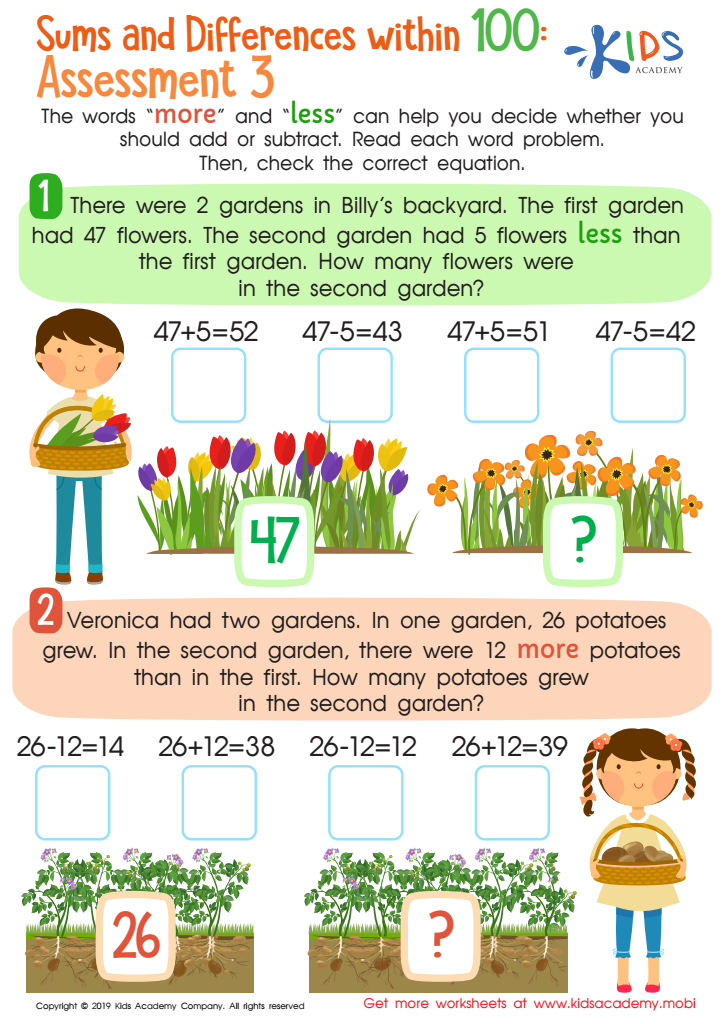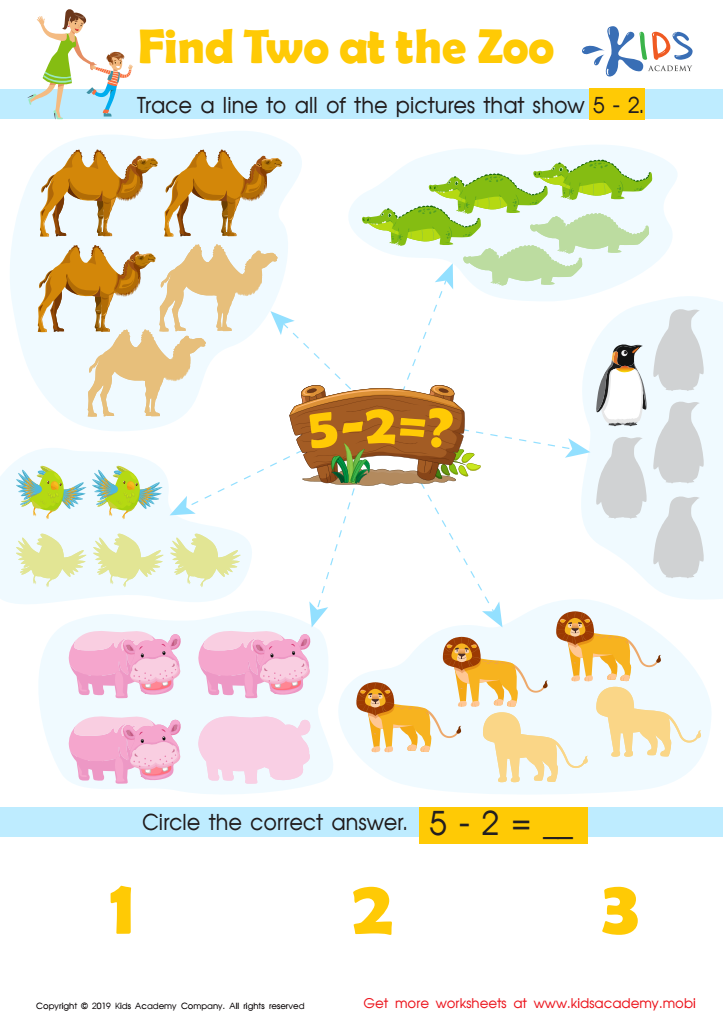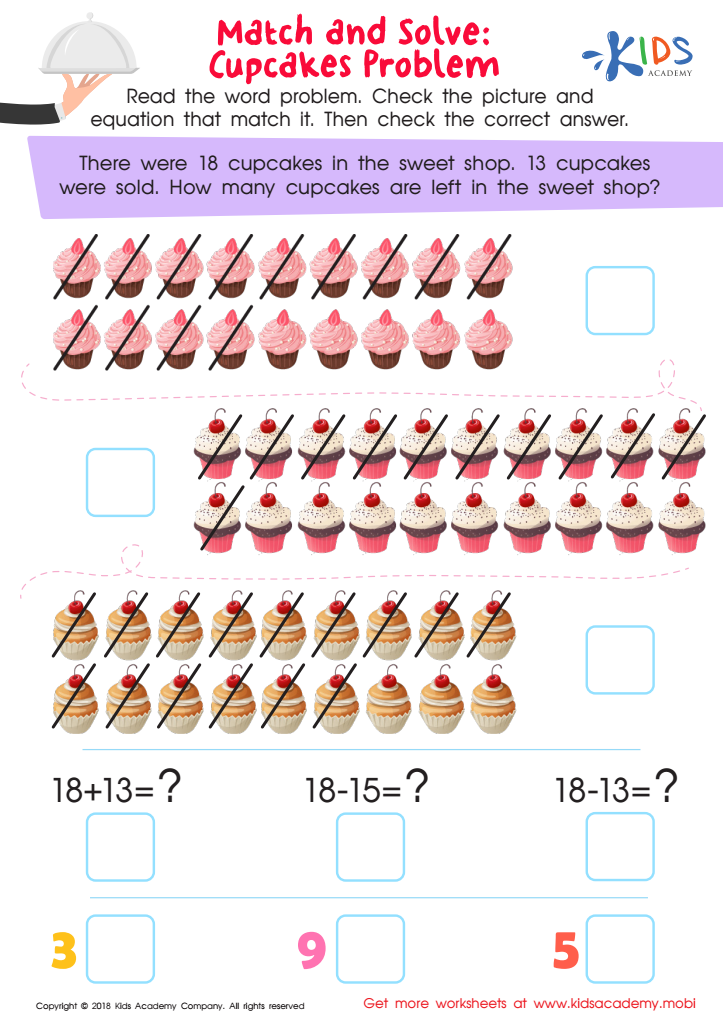Addition Practice Subtraction Worksheets for Ages 3-4
3 filtered results
-
From - To
Welcome to our Addition Practice and Subtraction Worksheets for Ages 3-4! Designed to make learning math fun and engaging, these printable worksheets introduce young learners to the fundamentals of addition and subtraction. Each worksheet features vibrant illustrations and interactive exercises that capture toddlers' attention while enhancing their math skills. Through playful activities, children will practice counting, recognizing numbers, and developing problem-solving abilities. These worksheets support early childhood education by encouraging hands-on learning and promoting a strong foundation in mathematics. Dive into our collection today and watch your little ones grow confident in their math abilities—learning has never been this enjoyable!


Sums and Differences Within 1 - Assessment 1 Worksheet


Find Two at the Zoo Worksheet


Match and Solve: Cupcakes Problem Worksheet
Addition and subtraction practice for children aged 3-4 is crucial for their cognitive development and future academic success. At this stage, young learners are naturally curious and better able to absorb foundational concepts through engaging activities. Working on simple addition and subtraction helps enhance their number sense, which is the ability to understand, relate to, and connect numbers in a way that makes sense to them.
Moreover, introducing these concepts early fosters problem-solving skills and critical thinking. Children begin to grasp the idea of quantities, leading to improved fine motor skills when they engage in hands-on activities such as counting blocks or using toys for visualization. Additionally, this practice supports language development, as they learn to express their understanding through terms like "more," "less," "total," and "take away."
For parents and teachers, participating in addition and subtraction activities creates an opportunity for bonding and building a positive learning environment. Early practice lays the groundwork for future mathematical learning, setting children up for success as they progress in school. Ultimately, investing time in early math skills can boost children's confidence, enjoyment of learning, and readiness for more complex subjects as they grow.
 Assign to My Students
Assign to My Students




















